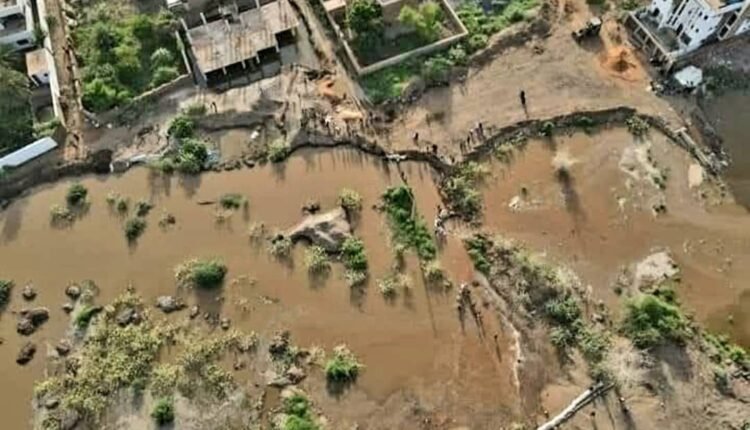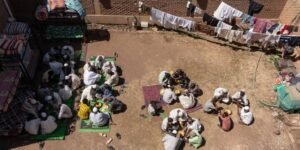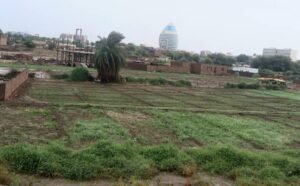As a Result of RSF Looting and Destruction: Tuti Island Left Uninhabited for the First Time

Sudanhorizon – Azmi Abdel Razek
Wamda longs for her family home on Tuti Island, a place she was forced to leave in the early days of the war by the Rapid Support Forces (RSF). Now, she searches Google Earth for the memories she left behind but finds nothing. The whereabouts of many neighbours and friends remain unknown, leaving her plagued by fear and anxiety.

Nearly 20 months into the war, Tuti Island—situated in the heart of Khartoum—has transformed into a military base for the RSF and is now nearly deserted. The scent of death lingers in its once-vibrant streets, owls perch ominously on ancient, untended trees, and the bridge to Tuti is eerily still except for the motorcycles used by rebel gangs. The eastern bank of the Blue Nile, once a lively recreational area known as The Beach, has fallen silent, its cheerful buzz silenced by gunfire. The water pumps that once irrigated gardens and farms have ceased, leaving the land barren.

For generations, Tuti’s residents never considered abandoning the island their ancestors built along the pristine riverbank—a jewel encircled by the Nile. Known for its thriving agriculture, fishing, and tourism, Tuti produced many political, art, and sports luminaries. But in recent months, the RSF tightened its grip, arresting many men, harassing women, and converting homes into makeshift prisons. Dozens of young men and elders have died under torture or from starvation and disease, while others remain detained.
Mahjoub, one of the last to leave Tuti, found refuge in a shelter in Omdurman after losing hope of returning to a normal life. “I left with many families,” he told Al-Muhaqiq. “It took over three days to reach Omdurman—a journey fraught with danger. It feels like I was given a second chance at life. I can’t believe I escaped those killers.”
Reports suggest that RSF members forced families to pay exorbitant sums—ranging from three to five million Sudanese pounds—to be allowed to leave. Most homes were looted, their doors smashed, and furniture scattered on the streets, leaving residents heartbroken. The RSF also mounted artillery on high-rise buildings, targeting Omdurman from across the river.
The situation deteriorated further as essential supplies dwindled. Food distributions, supported by Tuti expatriates, ceased. Electricity, water, and telecommunications were cut off. The island’s only functioning pharmacy was looted, leaving families no choice but to flee. Life on Tuti became unbearable—a nightmare none of its residents could have imagined.
For the first time in history, Tuti Island is devoid of its people. Even during the fiercest Nile floods, its residents stood their ground, battling the river’s wrath with sheer courage. But today, they have been forcibly displaced, leaving Tuti a ghostly remnant of its former self—oppressed, lifeless, and cloaked in darkness and sorrow.
When will its morning light return?
Shortlink: https://sudanhorizon.com/?p=3202

